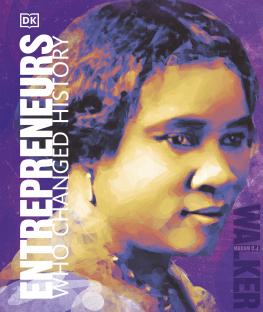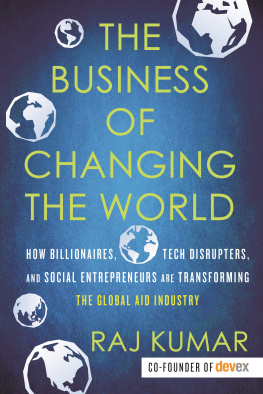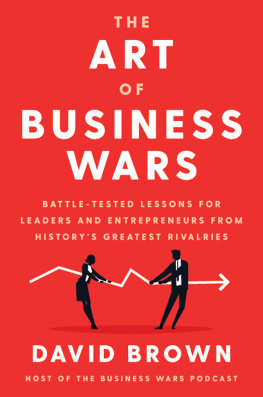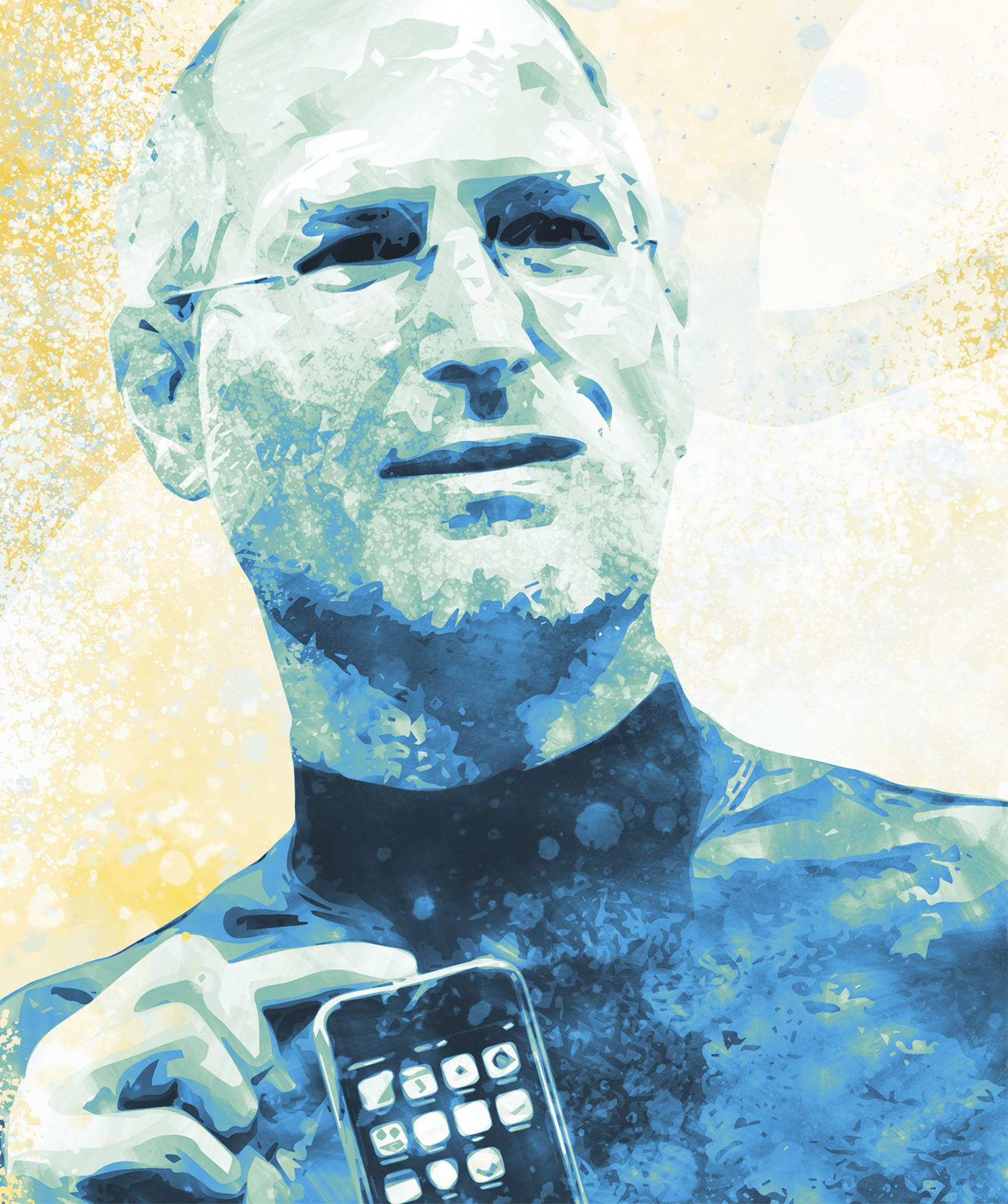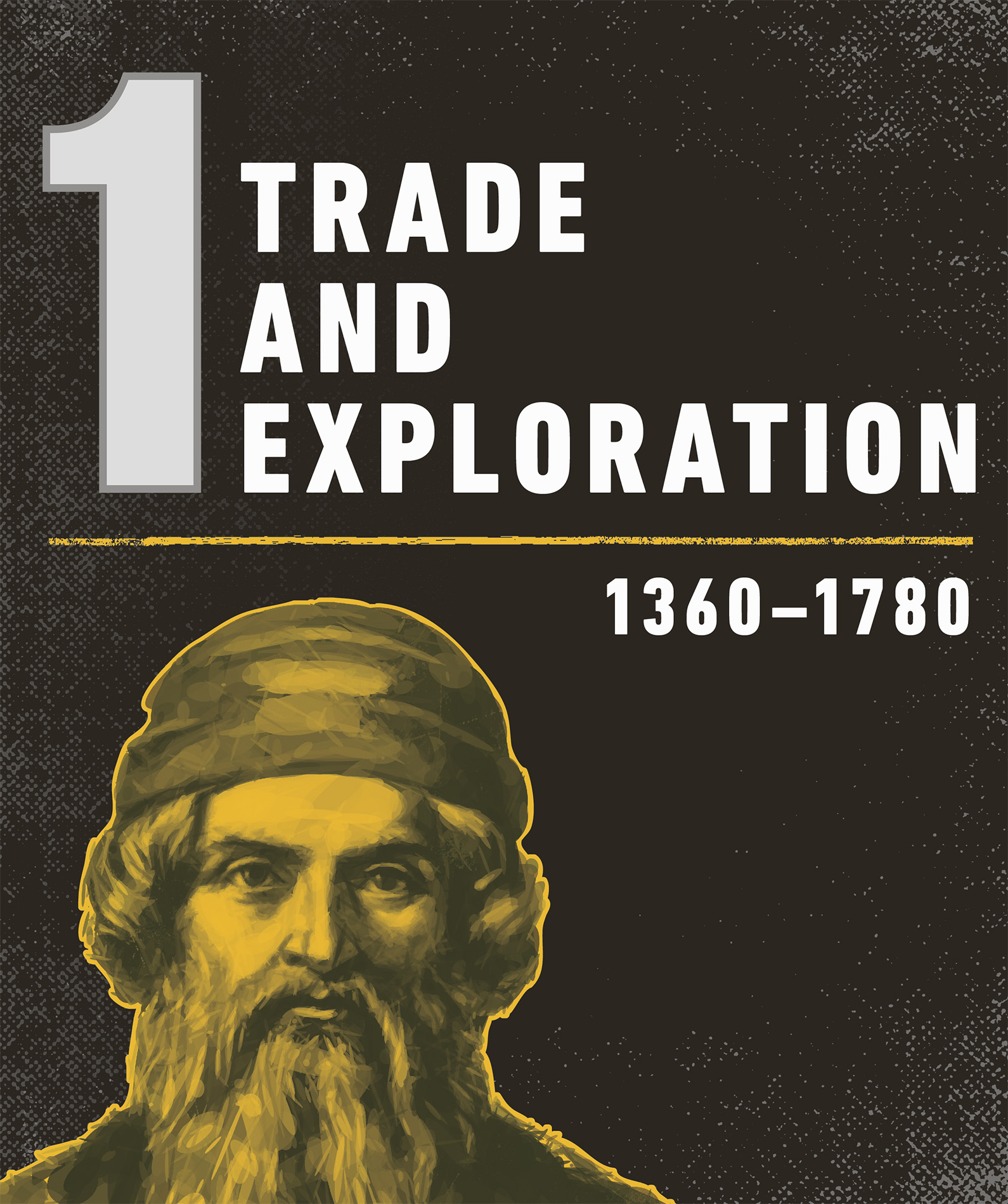g
INTRODUCTION
Entrepreneurs are individuals who dare to pursue their vision to create new businesses, products, or services, often at great personal risk. Their innovations not only drive progress and create opportunities, but they also make an indelible and lasting impact on our society.
N ew ideas have always been a fundamental component of economic growth and development. Without entrepreneurs, many great leaps forward would not have taken place. A foundation of the modern world, entrepreneurship is one of the chief means of increasing levels of production, alongside investment capital, labor, and natural resources.
However, despite entrepreneurs overwhelmingly positive contribution to both society and the wider economy, their new enterprises are not always welcomed. Entrepreneurs often go against the grain, challenging the economic status quo in seeking to take advantage of an opportunity in the market, to introduce a bold new technology, or simply to follow a hunch. These individuals are risk-takers and prepared to jeopardize their reputations for a vision that may call for a substantial leap of faith. Ambitious, creative, resilient, and determined, entrepreneurs are prepared to overcome any obstacle in their commitment to an idea, often at great personal sacrifice. Failure can come at a heavy cost; equally, success can deliver huge financial and personal reward, as well as an enduring legacy.
The wheels of change
Examples of entrepreneurship can be found throughout history, although little is known about the lives of the economic innovators of the ancient world. The pioneers of the later medieval and early modern period are better documented.
At the time when the first roots of capitalism were beginning to emerge in Europe and eventually in North America, individuals turned from traditional ways of running businesses to experiment with new ideas. This led to developments such as international banking and Johannes Gutenbergs printing press.
By the early 19th century, the Industrial Revolution had transformed the world. Rates of economic growth and production soared as manufacturing was automated, made possible by inventions such as the steam engine. Modernization of transportation accelerated globalization, allowing entrepreneurs to build businesses across countries and even continents, and permitting industrialists like Andrew Carnegie and Cornelius Vanderbilt to amass huge fortunes.
As the 19th century progressed, innovation gathered pace. Thomas Edison spread electric power and light across the world. Meanwhile, the automobile was invented and assembly-line production allowed it to be manufactured for a mass market.
The first half of the 20th century saw entrepreneurs overcome the challenges of two world wars and the Great Depression. Visionaries like Coco Chanel, Walt Disney, and Clarence Saunders created empires in fashion, cinematic entertainment, and supermarket retail, respectively.
The potential opportunitiesand risksfor entrepreneurs multiplied in the decades after World War II. The economy became increasingly globalized as modes of transportation and communication sped up. Oprah Winfrey and Richard Branson built business empires that covered a range of economic sectors, while pioneers like Bill Gates and Steve Jobs made computing technology a lynchpin of daily life.
Many of lifes failures are people who did not realize how close they were to success when they gave up.
Thomas Edison, 1877
Entrepreneurial impact
By the 1990s, the internet had emerged as a revolutionary force in the economy, forever altering traditional methods of doing business. Through seizing the opportunities that the digital economy has to offer, todays entrepreneurs, like Jack Ma and Mark Zuckerberg, have the potential to capture the attention of billions of consumers, as well as gather information aboutand potentially influencetheir tastes and preferences.
Meanwhile, social entrepreneurship is growing, with the power to fix social problems in the long term by creating new institutions, such as Muhammad Yunuss concept of microcredit to help struggling entrepreneurs. This sector is likely to continue to expand in the wake of the COVID-19 pandemic and the ensuing global economic crisis, as people must apply innovative thinking to keep their businesses afloat.
Ultimately, however, entrepreneurs must still bring something novel to the marketplace to capture the attention and imagination of the consumer. Often, the best entrepreneurs are those who emerge during the most challenging of times and the most unstable of economies.
g
Trade and Exploration
1360-1780
g
GIOVANNI DE MEDICI
13601429
In founding the Medici Bank, the largest financial institution in 15th-century Europe, Giovanni de Medici established the power base for the House of Medici. The family acquired vast wealth and political influence, becoming hereditary rulers of Florence and great patrons of the arts, architecture, and the sciences.
T he Medici originated from the Mugello region of northern Tuscany, Italy. By the 14th century, many of the family had moved to Florence, where they were involved in its burgeoning banking sector. However, they were by no means the wealthiest family in a city that was becoming the greatest financial center in Europe. Giovanni di Bicci de Medici was born around 1360. His father was not particularly successful, and when he died of plague in 1363, his estate amounted to only six florins to divide among his five sons.
The Medici Bank
Giovanni started his career in 1382 as an apprentice to his kinsman Vieri di Cambio de Medici, who owned a bank in Florence. Giovanni was sent to work at its branch in Rome, servicing the needs of the bishops and cardinals who attended the papal court. He was so successful that he became its manager after three years, then a junior partner, and eventually took over from Vieri altogether by using his dowry to buy Vieris stake. In 1393, Giovanni established the Rome branch of the bank as his own independent firm, taking on Benedetto di Lippaccio de Bardi, a member from another powerful Florentine banking family, as his partner. Four years later, he moved the banks head office to Florence, effectively founding the Medici Bank.

